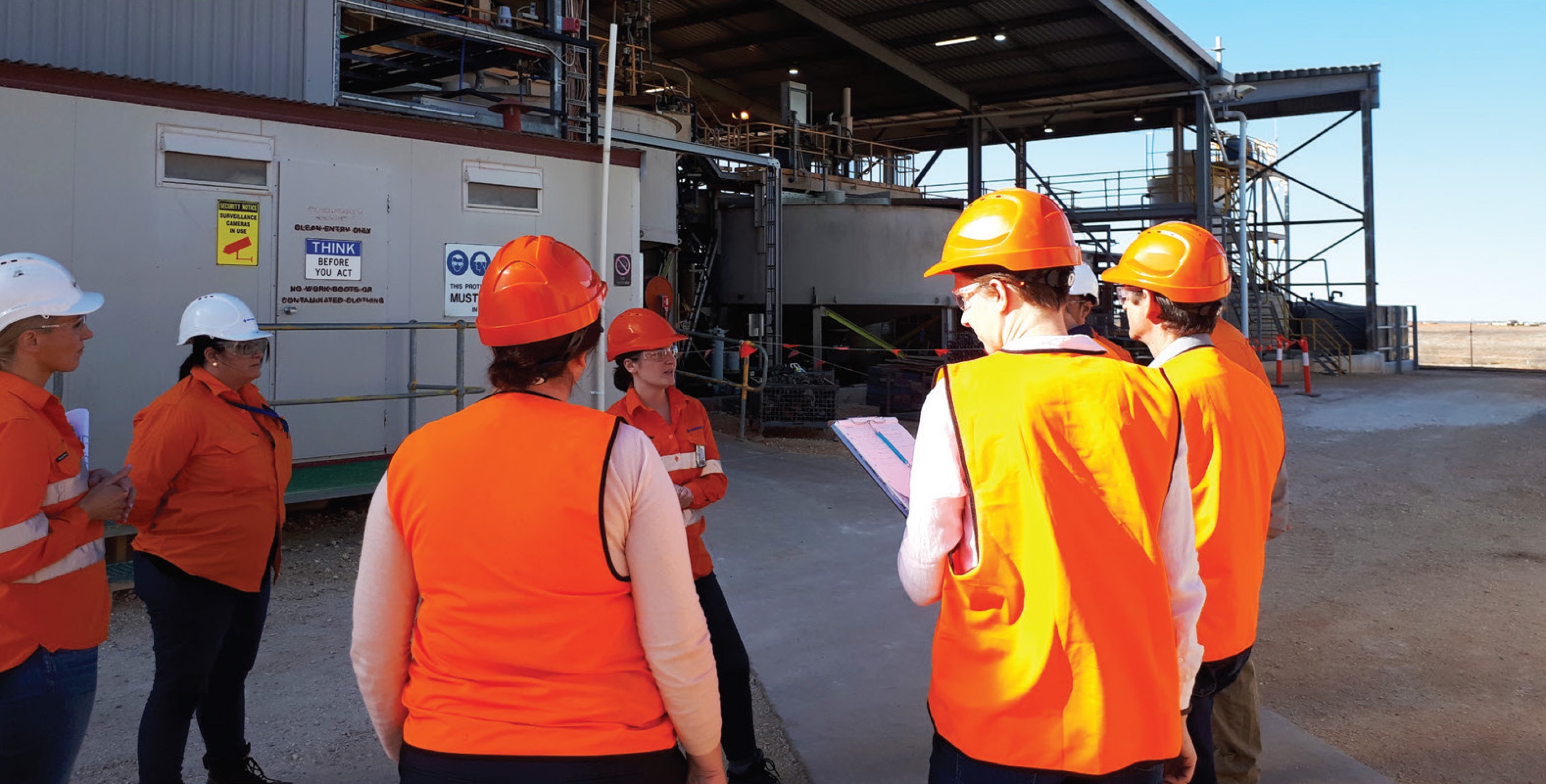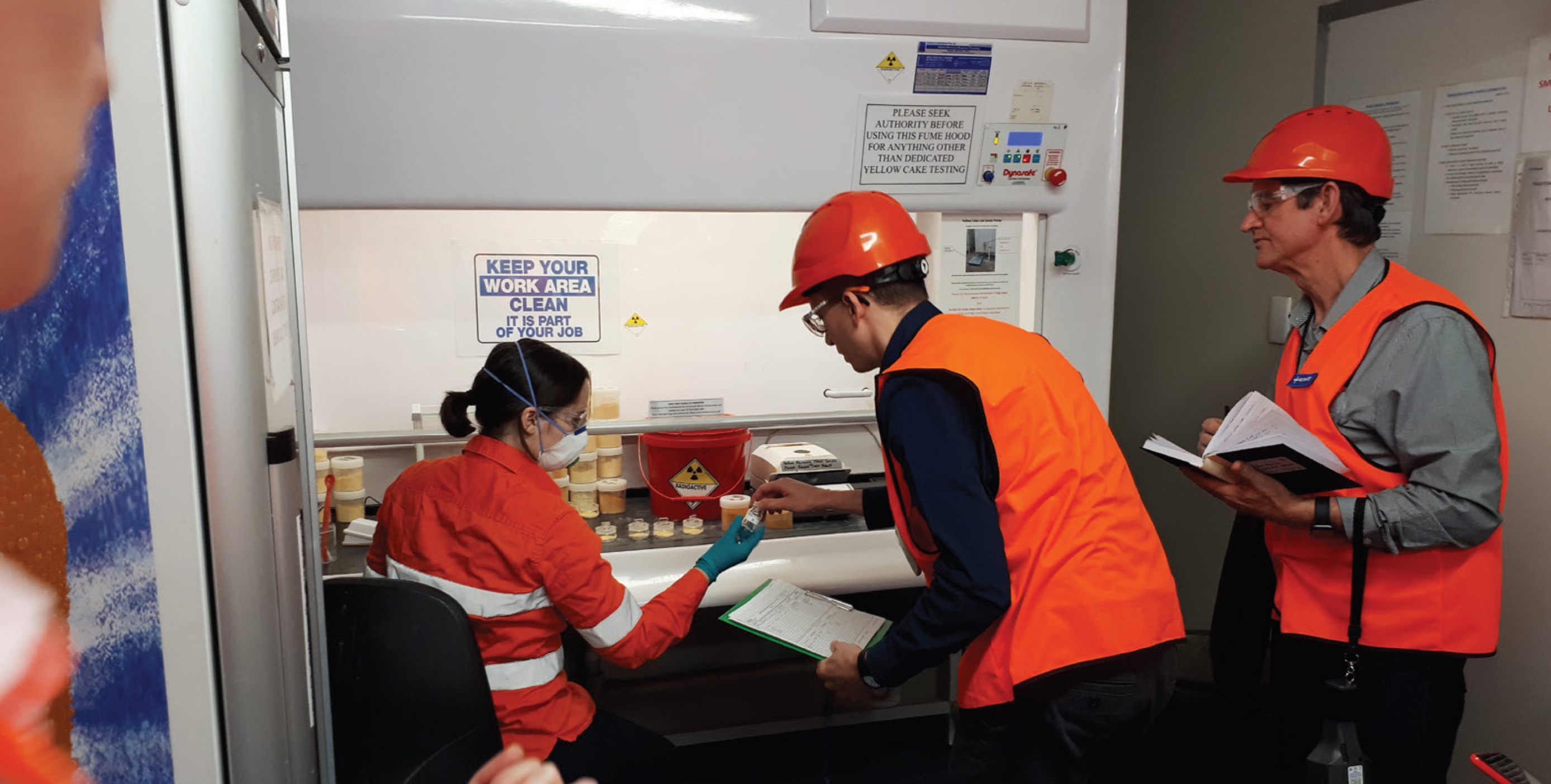The Year Ahead
Each few years the CTBTO conducts field exercises to help to test equipment and procedures for conducting an on-site inspection, in order to refine preparedness for entry into force of the CTBT. ASNO's Malcolm Coxhead is contributing to a group of experts developing viable and technically sound scenarios for a further series of exercises in 2019–20.
A ban on the production of fissile material for nuclear weapons is integral to progress on nuclear disarmament and Australia will continue to promote the commencement of negotiations on a treaty on fissile material. Australia will have additional opportunities to promote this objective when it takes on the presidency of the Conference on Disarmament for part of 2020.
IPNDV will conclude its second two-year work phase in late 2019, elaborating concepts, procedures and technologies for verified nuclear disarmament. IPNDV participants see a larger role for practical exercises as its third work phase gets underway. A joint Franco-German exercise on verified dismantlement of a nuclear explosive device is planned for late September. ASNO experts will participate in evaluation of this exercise.
On efforts to promote effective safeguards implementation internationally, ASNO will continue its leadership role in the Asia-Pacific Safeguards Network (APSN), including at the upcoming 10th anniversary meeting in Bali in August 2019. Another important aspect of influencing developments in IAEA safeguards, is DG ASNO's role as Chair of the IAEA Director General's Standing Advisory Group on Safeguards Implementation (SAGSI). This has been extended until 2021.
Regarding domestic nuclear security, ASNO will focus on ANSTO's conduct of a Periodic Safety and Security Review of the OPAL reactor and also continued oversight of associated technology and UOC storage and transport. Internationally ASNO will be deeply involved with preparations for the 2021 Review Conference of the Amended CPPNM with DG ASNO co-chairing the preparatory process. We will continue to engage in the Nuclear Security Contact Group and chair (Director, Nuclear Security Section, Bayer) the Nuclear Security Guidance Committee. ASNO will also actively participate in the third International Conference on Nuclear Security in February 2020, which will involve a ministerial component.
Development of the new Nuclear Material Balance and Tracking (NUMBAT) database in mid–2018 provided an opportunity to reflect how way reporting and tracking procedures under our Administrative Arrangements (AA), pursuant to our nuclear cooperation agreements, function in practice. Other aspects of NUMBAT to be developed over the coming year should improve the efficiency of ASNO and permit holder management of inventory records and reports.
In 2019–2020 ASNO will be undertaking a stocktake of the various AAs to identify ways to modernise and simplify reporting, communication protocols and AA text.
Preparations continue for the practical implementation of the new bilateral Australia-UK NCA, once it enters into force, should the UK formally withdraw from the EU. ASNO will continue to encourage close cooperative approaches by likeminded counterparts to manage the transition from the Australia-Euratom NCA to the Australia-UK NCA, should that take place.
ASNO will continue to work with the IAEA and ANSTO on the deployment of the IAEA's customised active well coincidence counter (AWCC) detector to measure the nuclear material content in solid waste from the ANSTO Nuclear Medicine (ANM) molybdenum–99 production plant. After the successful hot test of that detector in February 2019 the next step is to deploy the system for formal IAEA verification purposes.
A key challenge for ASNO over the coming year, will be the assisting with the development and implementation of a new chemical database to support Australia's reporting obligations under the CWC. ASNO will work with the DFAT's Information Management and Technology Division to develop a new chemical database system with an industry access online portal to improve the end-user stakeholder experience and the efficiency of ASNO's regulatory functions.
Finally, it is anticipated that Australia's resumption of a seat on the OPCW Executive Council for a two-year term from May 2020 will mean increased demands on ASNO to provide technical advice and support in the development of Australia's policy positions on issues being considered at the OPCW.


IAEA Complementary Access Inspection of Beverley and Four Mile uranium mines (Heathgate Resources)

